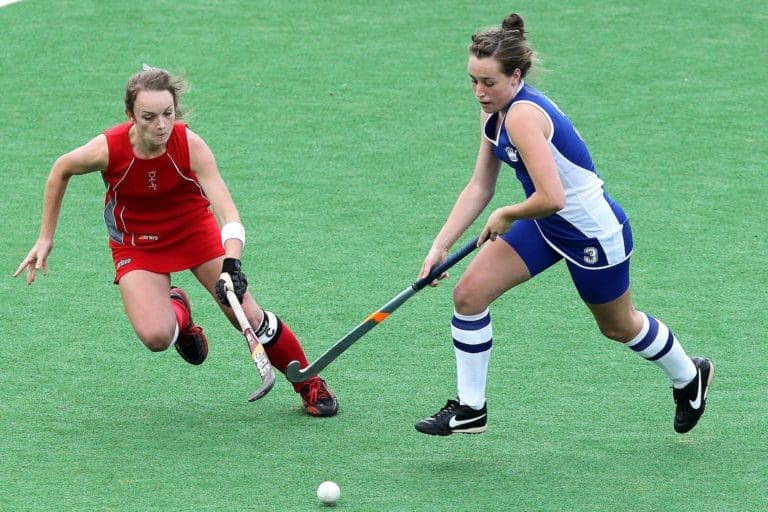
Hockey Psychology Tips: 4 Tips for Hockey Players in Dealing with COVID-19
Coping with uncertain times
We are all experiencing a time where our usual sense of normal is now abnormal. After the lockdown was announced, isolation and confinement became our everyday routine. At first, you may have felt similar to your holiday between Christmas and New year- a chance to stay home and relax, eat too much chocolate and watch copious tv- however, the mood has shifted. Many are beginning to see this as a little more serious and the reality of the lockdown is really starting to hit home.
This can be a worrying time for anyone however, you may feel added pressure as an athlete. Now I know hockey season is over for the majority so, you may be thinking “this doesn’t affect me”. But this has an impact on all aspects of sport and fitness, not just your ability to play matches and train. For all those who were planning on playing in summer championships and mixed leagues, you may be feeling a sense of what now? Whether you were planning on playing hockey in the summer or just aiming to maintain general fitness levels for pre-season, you may all have worries about what to do.
What will happen if I can’t practice?
Will I maintain my fitness levels?
How am I to improve my skills if I can’t play?
These are ALL reasonable questions, and all can have an impact on your mental and physical health. Most importantly, these are questions ALL athletes will think about and it is absolutely normal. For example;
- You may feel lethargic/lack motivation to go and work out
- Anxieties surrounding isolation and sport may be experienced
- You may notice fluctuations in weight gain and muscle mass
- Feelings of loneliness and being cut off from others
- Worries about your future performance when/if the preseason starts
- Lacking routine or meaning in tasks
- Others may suffer with lack of purpose and desire to achieve goals
So, what can I do to help?
Here are 4 basic tips anyone can use to help them through this time:
1. Create a routine
At the moment, any sense of normal or meaning is questioned by the removal of activities which would usually provide a structure. However, setting small tasks and events to do during your day can combat these feelings. This can be as simple as; wake up before 8am and go to sleep by 10pm. Or, work out during your ‘lunch break’ for 30 mins. This will help to give your day-to-day life significance, allowing you to feel satisfied you have achieved something and more relaxed whilst staying at home.
2. Goal setting
Set yourself goals you want to achieve, both whilst in isolation and when you eventually get to return to hockey. You may have had other goals before COVID-19, I don’t want you to think these are now irrelevant, because they still are achievable. You just need to reassess and re-evaluate. Some goals may just require an extension to their timeline – totally acceptable! If it is still achievable after COVID-19, keep it! However, make sure you also set yourself new goals during isolation. Here are some handy ways to ensure you set great goals:
Make them SMART:
Specific (what exactly do you want to achieve?)
Measurable (how much? How many? Will I know when it is accomplished?)
Achievable (how can I achieve this? Is it attainable?)
Realistic (is this worthwhile? Is it applicable to the current environment?)
Time-bound (when will this be done?)
3. You can’t control the uncontrollable
Sounds obvious? It can be. But it is important to remember that you can’t control the impact of COVID-19, so set yourself small things that can be controlled. This includes your effort in certain tasks (e.g. maintaining your fitness levels), your attitude towards your new everyday routine and exercise plans (be positive and avoid negative thoughts!). And finally, your response is important. There are numerous things you can’t control right now, but your response to it is not one of them. Control your response via your thoughts, actions and how you manage your emotions. For example, you may be frustrated you can’t play hockey, that’s ok! Go and learn a new way of maintaining fitness instead (online Zumba class or yoga, anyone?).
4. Stay in contact and be connected
Social distancing doesn’t have to mean social exclusion. Find new ways to talk to teammates and arrange group video calls to chat to each other regularly. You might not be able to go down to a hockey pitch together to train but why not share your fitness tips and daily workout schedule with each other? Set up a group chat to talk with everyone and encourage others to share their fitness tips! You can even start a weekly fitness challenge, have one team member set the challenge for the week (e.g. run 5 miles this week) and everyone send a sweaty selfie when you’ve done it!
There are so many ways to stay connected with teammates, time to be creative! What can you come up with?
Hopefully, implementing these 4 tips can help you combat any anxieties or worries that you may have during this time. See this as an opportunity to return to hockey as physically fit as you can be and try to be as positive as you can!
Feel free to sign up to the “The Mental Edge” if you’d like to learn more about how to get through this uncertain period or for Hockey Psychology advice.
To get in touch for one 2 one Sports Psychology Coaching with a Olivia Scott, Mental Skills Performance Coach and Sports Counsellor , based in North Tyneside, near Newcastle upon Tyne – Telephone, SKYPE or online calls are available.

Best Wishes
Olivia Scott
Mental Skills Performance Coach and Sports Counsellor located near Newcastle Upon Tyne, UK. With a passion for helping hockey players and other athletes achieve their ambitions.

